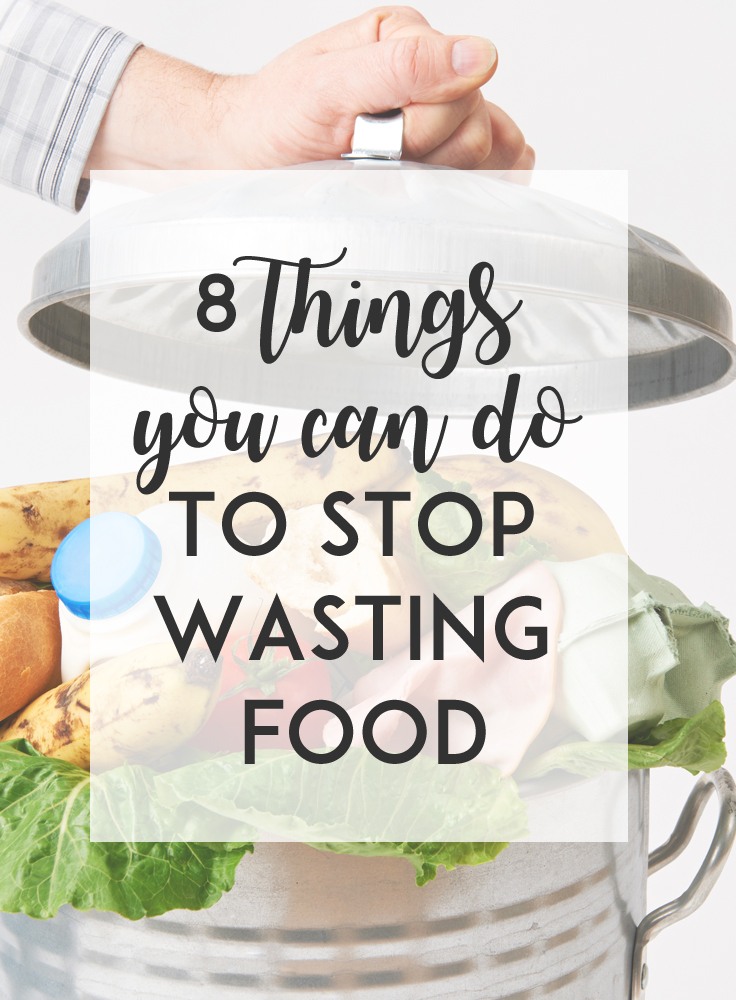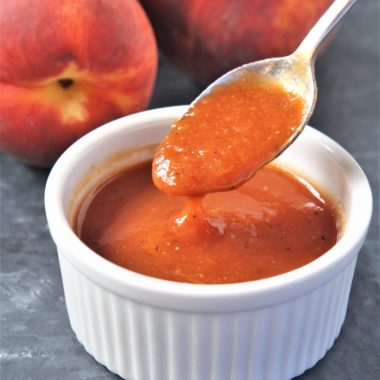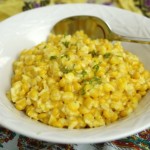Last Updated on August 13, 2017 by Karen
If you hate throwing out food (and essentially throwing money away!), consider these eight things to you can do to stop wasting food and save money.

We’re all guilty of it, tossing away the loaf of bread that has become moldy because it’s been sitting on the counter for too long. Or, throwing away the jar of mustard that have been hiding in the back of the fridge and is now expired.
According to a report from the Natural Resources Defense Council, average American families throw out approximately 25% of the food and beverages they buy. This can cost the average family of four about $1,500 every year! That’s a sad reality, especially when one in eight Americans struggles to put enough food on the table.
Most of the waste is happening in our own kitchens, but the good news is we can all make changes to reduce the amount of waste.
In today’s post, I’m sharing some ways I reduce food waste at home.
Check your pantry and fridge
Make it a habit to check your pantry at least once every month to identify items that are soon expiring. Look through your fridge every couple of days, so you can prioritize using ingredients that will go bad soon when planning your meals.
First in, first out
When unpacking groceries, move older food items to the front of the fridge, freezer and pantry and put new products in the back. You’re more likely to use up the older items before they expire.
Plan your meals for the week and build a shopping list
Create a meal plan and a shopping list based on what you already have on hand. This helps to prevent spontaneous purchase. And that means you’re less likely to buy food you’ll end up throwing away.
Recommended reading: I Tried Meal Planning and Here’s What I Learned
Buy only what you need
Instead of buying big bags of fruits and veggies, buy them loose and only what you need. Check the bulk bins in your grocery store for nuts, grains, and dried fruits. You can get exactly what you need, instead of having extra ingredients that will be thrown out later.
Store fruit and vegetables the right way so they will last longer
When you store fruits and vegetables properly, they can stay fresh longer. Store potatoes and onions in a cool, dark place. Wrap herbs in moist paper towel, place in a plastic bag, and refrigerate. You can also get inexpensive, reusable produce storage bags and storage containers that are designed to help extend the life of your produce.
Freeze unused ingredients
Have food ingredients that can’t be used up quickly enough? See if you can freeze, can or even pickle them. There are lots of foods that can be frozen such as bread, cheese, and lots of fruits and veggies.
Find ways to use food scraps
Try to use up whatever food you’re cooking with. When cooking up a chicken or turkey, I used to throw out the bones when I was done removing the meat from them. But then I got smart and started saving my poultry bones to make my own homemade stock. The homemade stock is perfect for sauces, soups, and stews. Sometimes I’ll throw in some leftover carrots, celery, and onions, which add great flavor as well.
Never toss out stale bread. Instead, make breadcrumbs by toasting in the oven and pulsing them in blender or food processor. Day old rice can be turned into fried rice.
Transform leftovers into a new meal
Plan meals around using ingredients that you have on hand for a different meal. Throw those leftover food ingredients into smoothies, stews, and stir-fries where almost any ingredient goes. Bananas are turning brown? You can save them to make delicious banana bread later on.
Now it’s your turn! What tips do you have for reducing food waste?
















Pingback: These 7 Grocery Hacks Will Help You Save Money - The Tasty Bite
Pingback: I Tried Meal Planning and Here's What I Learned - The Tasty Bite